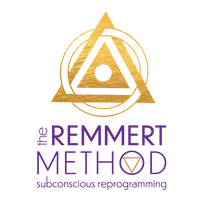According to the ACE Study, adverse childhood experiences play a powerful role in adult failures, challenges, and self-sabotage patterns. Based on the latest neuroscience, we help people from all walks of life to change the subconscious references created by adverse childhood experiences, to allow for current and future success in all areas of life.
In this 30-minute Consultation Call, we'll share with you, how we can help you to clear the subconscious blocks that are holding you back from your goals and dreams.
No obligation, no strings.
If, by the end of the call, you decide you'd prefer to "go it alone" there's no obligation.
If, on the other hand, you feel you'd like to get faster results, we can check to see if it would be a good fit for us to work with you.
No obligation, no strings.
If, by the end of the call, you decide you'd prefer to "go it alone" there's no obligation.
If, on the other hand, you feel you'd like to get faster results, we can check to see if it would be a good fit for us to work with you.
How Adverse Childhood Experiences Determine Success and Challenges
- From birth, every experience is recorded by the subconscious, but not as a camera would record it. Every experience is interpreted by the subconscious, and given meaning - and then the meaning of that is recorded for future reference.
- This is how we learn who we are and how the world works. It's how a baby can be born in rural Africa, or Hollywood, and learn to fit in and survive in that environment.
- Every moment, the subconscious is referring to the information it holds from previous experiences, as "proof" and "evidence" of who we are and how the world works - then prompting the brain to trigger the organs, to produce chemicals.
- These chemicals create feelings, sensations, emotions, and impulses.
- The conscious mind then interprets those feelings, emotions, sensations, and impulses - and behaves accordingly.
- This is how the subconscious controls the conscious mind through the body.
- In addition to this, every new experience is filtered through the existing references created from past experiences, and then added to the structure of existing beliefs.
Can Memories Really Be Changed?
Science has discovered that memories are not only inaccurate and incomplete, but change every time we recall them. For more detailed information on this, with references to scientific research, read: Can We Change Adverse Childhood Memories?
If you recall a memory right now, from when you were five-years-old, you are not bringing to mind a complete "movie" or picture. Your brain is, in fact, pulling together a range of resources, and "piecing" that memory together as you recall it. Memories are not stored as complete representations of events; they are put together in the moment you remember them, like a jigsaw puzzle. And the resulting memory is changed as you recall it, according to any new resources gathered since the last time you recalled it.
Just as every new experience is filtered through existing data held in the subconscious from previous experiences, memories are filtered through current data from all previous experiences to date.
If you recall a memory right now, from when you were five-years-old, you are not bringing to mind a complete "movie" or picture. Your brain is, in fact, pulling together a range of resources, and "piecing" that memory together as you recall it. Memories are not stored as complete representations of events; they are put together in the moment you remember them, like a jigsaw puzzle. And the resulting memory is changed as you recall it, according to any new resources gathered since the last time you recalled it.
Just as every new experience is filtered through existing data held in the subconscious from previous experiences, memories are filtered through current data from all previous experiences to date.
Considering:
1. Childhood memories are forming the foundation "proof" and "evidence" within the subconscious, of who we are and how the world works
and
2. Memories are not accurate, and are constantly changing
- we can change those childhood memories that are providing the structure and support for limiting subconscious beliefs.
For example:
A person who has low self-confidence is experiencing lack of self-confidence because the subconscious mind is referring to "proof" and "evidence" from foundation childhood memories that they are not worthy, or not good enough, or whatever other subconscious beliefs have been built on that "evidence".
This means that the subconscious is constantly referring to that information - those memories - as "fact" - and then prompting the brain to trigger the organs to produce chemicals that create feelings of inadequacy, or inferiority etc.
The conscious mind, aware of the feelings, interprets them to mean "I'm not good enough", "They don't like me", "I can't do this", "I'm not clever enough"... and so on.
Now, if that person were to use CMT to change those early childhood memories that are providing the "proof" for those beliefs, the subconscious would automatically be prompting the brain to trigger the organs to produce different chemicals. And these chemicals would create different feelings... which would result in a different self-image, and therefore, more confidence.
For instance, that person may have a memory of being humiliated by a teacher when they were 8 years old. And several memories of their parents being disappointed, angry, dismissive, or impatient with them.
They could change those memories to where their mother and father are loving, affectionate, respectful, and proud of them.
They could change the school memory to where the teacher is praising them, and impressed with what they've done.
The subconscious would then be referring to the new memories as "proof" and "evidence" that they are worthy, loved, valuable, respected, and intelligent. Self-confidence would be a natural and automatic result!
1. Childhood memories are forming the foundation "proof" and "evidence" within the subconscious, of who we are and how the world works
and
2. Memories are not accurate, and are constantly changing
- we can change those childhood memories that are providing the structure and support for limiting subconscious beliefs.
For example:
A person who has low self-confidence is experiencing lack of self-confidence because the subconscious mind is referring to "proof" and "evidence" from foundation childhood memories that they are not worthy, or not good enough, or whatever other subconscious beliefs have been built on that "evidence".
This means that the subconscious is constantly referring to that information - those memories - as "fact" - and then prompting the brain to trigger the organs to produce chemicals that create feelings of inadequacy, or inferiority etc.
The conscious mind, aware of the feelings, interprets them to mean "I'm not good enough", "They don't like me", "I can't do this", "I'm not clever enough"... and so on.
Now, if that person were to use CMT to change those early childhood memories that are providing the "proof" for those beliefs, the subconscious would automatically be prompting the brain to trigger the organs to produce different chemicals. And these chemicals would create different feelings... which would result in a different self-image, and therefore, more confidence.
For instance, that person may have a memory of being humiliated by a teacher when they were 8 years old. And several memories of their parents being disappointed, angry, dismissive, or impatient with them.
They could change those memories to where their mother and father are loving, affectionate, respectful, and proud of them.
They could change the school memory to where the teacher is praising them, and impressed with what they've done.
The subconscious would then be referring to the new memories as "proof" and "evidence" that they are worthy, loved, valuable, respected, and intelligent. Self-confidence would be a natural and automatic result!
But That's Not What Really Happened
* The subconscious does not use logic or reason - only the conscious mind is able to reason and use logic.
* The subconscious has no ability to judge right from wrong - like a computer, it simply operates according to the programming it currently holds.
* The subconscious cannot tell the difference between reality and imagination. When you watch a scary movie, your brain and body behave as if the threat is real - your heart-rate increases; adrenaline is pumped into your bloodstream; you go into the fight/freeze/flight state. But, at the same time, your conscious mind knows it's just a movie.
Changing memories is the same - your subconscious will believe whatever you give it, while at the same time, your conscious mind will know what originally happened.
* The subconscious has no ability to judge right from wrong - like a computer, it simply operates according to the programming it currently holds.
* The subconscious cannot tell the difference between reality and imagination. When you watch a scary movie, your brain and body behave as if the threat is real - your heart-rate increases; adrenaline is pumped into your bloodstream; you go into the fight/freeze/flight state. But, at the same time, your conscious mind knows it's just a movie.
Changing memories is the same - your subconscious will believe whatever you give it, while at the same time, your conscious mind will know what originally happened.
- Conscious mind - knows the difference between the original event and the new memory.
- Subconscious - doesn't know the difference, and will accept the new memory as "fact".
FREE STARTER PACK
Get started on changing your subconscious programming - it's quick, and it's free!
© COPYRIGHT 2016 ALL RIGHTS RESERVED.

